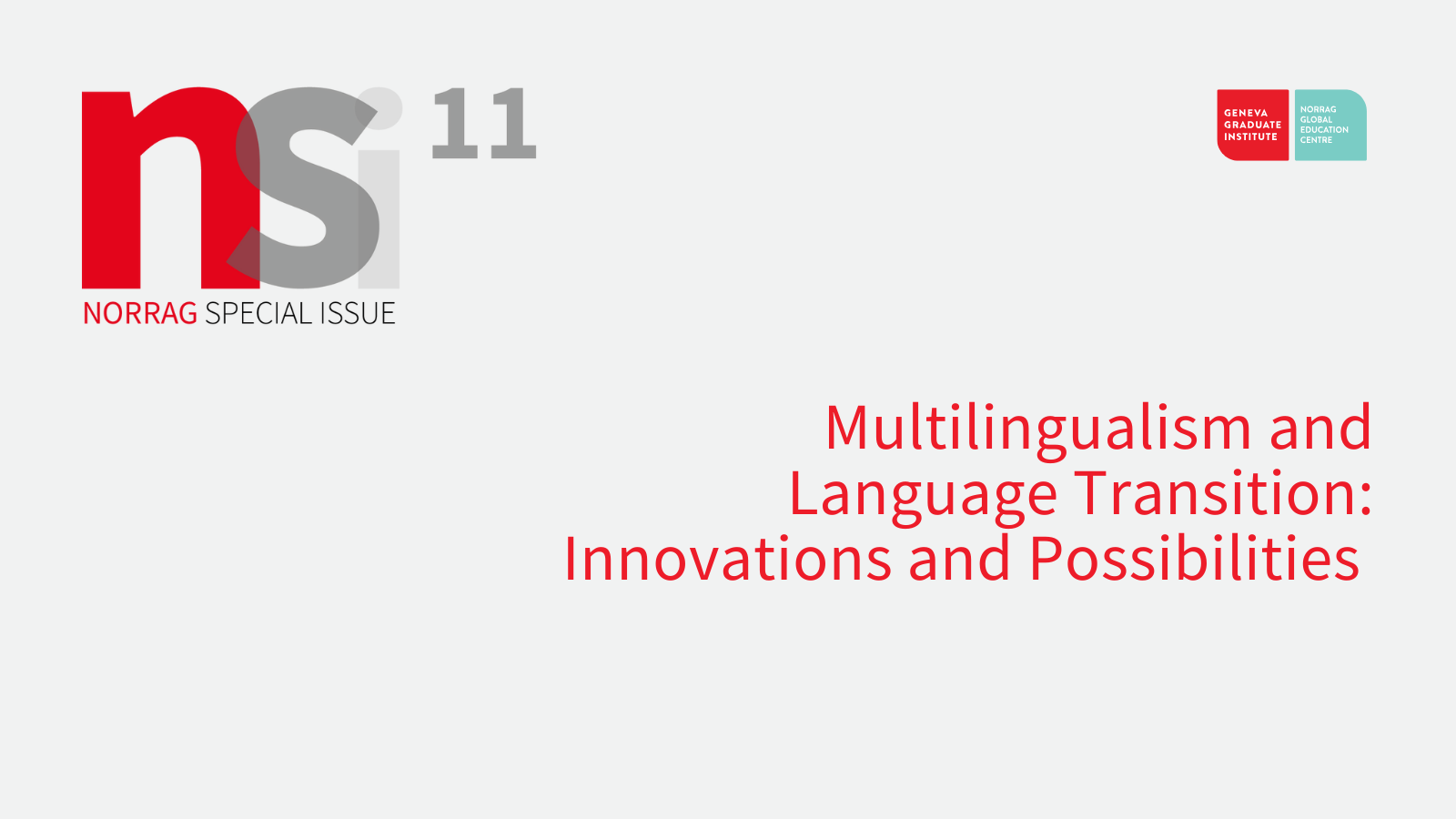Event Highlights: Launch NSI 11 - Multilingualism and Language Transition: Innovations and Possibilities
Multilingualism and Language Transition: Innovations and Possibilities
On 14 May 2025, NORRAG hosted the online launch of its eleventh NORRAG Special Issue (NSI11), titled Multilingualism and Language Transition: Innovations and Possibilities. The event was chaired by Moira V. Faul, NORRAG’s Executive Director, and opened with an introduction by one of the guest editors, Prem Phyak (Teachers College, Columbia University), who laid out the central purpose of this NSI: to explore the transformative possibilities that multilingualism brings to pedagogy and curriculum, and to critically assess the role of language in decolonising education.
Phyak introduced two contrasting models of multilingual education—monoglossic and transglossic—and emphasised how contributors to NSI 11 engaged with these models in diverse contexts. The key, he noted, is recognising which multilingual model works best under which local conditions.
The event featured presentations from five contributing authors representing varied geographic and educational settings:
- Basile Ndoubalo (ProQEB-Enfants du Monde, Chad) shared findings from his work titled “Rendons la Place aux Langues et Cultures Africaines à l’École [Let’s Make Way for African Languages and Culture at School],” advocating for the integration of African languages and cultures into school curricula. He presented evidence showing that multilingual education in Chad led to a 40% higher exam success rate compared to monolingual models.
- Aparna Dixit (Independent Researcher, India) presented on multilingual pedagogy for Adivasi (a collective terms for Indigenous peoples, meaning earliest dwellers or inhabitants) children, arguing that “reculturing” educators rather than learners—that is, deeply shifting educators’ beliefs in students’ capacities—can significantly improve learners’ skills and engagement.
- Eliakimu Sane (University of Dodoma, Tanzania) discussed how, despite an English-only policy in Tanzanian secondary schools, informal multilingual teaching practices are emerging organically among teachers. These practices foster better student engagement by bridging linguistic disconnection between schools and the communities they serve.
- Fr. Cornelius Wambi Gulere (Hellenic College/Holy Cross, USA) focused on Uganda and the integration of indigenous language training in higher education. He underscored that multilingual education enables epistemic access, strengthens cultural identity, fosters inclusivity, and contributes to the broader project of decolonising education.
- Fernigil L. Colicol (Mindanao State University Tawi-Tawi College of Technology and Oceanography, Philippines) addressed grassroots advocacy for the implementation of the Mother-Tongue-Based Multi-Lingual Education (MTB-MLE) policy. He emphasised the importance of continued civil society pressure to ensure effective implementation and institutional accountability.
Following the presentations, a virtual roundtable and Q&A session featured contributions from additional guest editors Angeline M. Barrett and Anthony A. Essien. Discussion topics included the low rates of transition from primary to secondary education, often due to unsupportive language transitions, and the need for epistemic justice in curriculum design. Panelists argued for the right of learners to access knowledge in their mother tongues, enabling deeper understanding and educational inclusion.
The event concluded with reflections from guest editor Barbara Trudell (SIL Global, USA), who reminded participants of the need to continuously ask: “What is happening? And then, what is really happening?“ in language policy and classroom practice.
This NORRAG Special Issue, drawing on research and practice from 21 contexts across four continents, offers a robust exploration of the role of language in transforming education systems. The NSI 11 publication and the recording of the event are available online with captioning in multiple languages.
Programme
- Opening
- Moira V. Faul, NORRAG, Switzerland
- Editors’ presentation
- Prem Phyak, Teachers College, Columbia University, USA
- Authors’ presentations
- Rendons la Place aux Langues et Cultures Africaines à l’École – Basile Ndoubalo, ProQEB-Enfants du Monde, Chad
- Navigating Multilingual Pedagogies in Primary Education for Adivasi Children in India
– Aparna Dixit, Independent Researcher, India - Multilingual Practices in Tanzanian Secondary School Classrooms – Eliakimu Sane, University of Dodoma, Tanzania
- Promoting Linguistic Diversity in Ugandan Higher Education: Integrating Indigenous Language Training – Cornelius Wambi Gulere, Hellenic College/Holy Cross, USA
- Mother-Tongue-Based Multi-Lingual Education (MTB-MLE) Policy and Its Implementation in the Philippines: Challenges, Advocacies, and Prospects – Fernigil L. Colicol, Mindanao State University Tawi-Tawi College of Technology and Oceanography, Philippines
- Conclusion
- Barbara Trudell, SIL Global, USA
- Closing remarks
- Moira V. Faul, NORRAG, Switzerland
Speaker Profiles
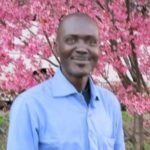 Basile Ndoubalo, spécialiste en psychopédagogie et chargé pédagogique chez Enfants du Monde au Tchad. Depuis 2018, il joue un rôle clé dans le programme ProQEB, un programme visant à améliorer la qualité de l’éducation de base. Il travaille notamment sur la formation continue des enseignants, la création de matériel pédagogique et le suivi des pratiques en classe. Titulaire d’un Master en éducation biplurilingue et interculturelle, il a mené des recherches sur l’apprentissage de l’écrit en deux langues—le sar et le français—dans les écoles bilingues du Tchad. Son engagement pour une éducation inclusive et ancrée dans les réalités linguistiques locales a été salué par une reconnaissance officielle en 2023.
Basile Ndoubalo, spécialiste en psychopédagogie et chargé pédagogique chez Enfants du Monde au Tchad. Depuis 2018, il joue un rôle clé dans le programme ProQEB, un programme visant à améliorer la qualité de l’éducation de base. Il travaille notamment sur la formation continue des enseignants, la création de matériel pédagogique et le suivi des pratiques en classe. Titulaire d’un Master en éducation biplurilingue et interculturelle, il a mené des recherches sur l’apprentissage de l’écrit en deux langues—le sar et le français—dans les écoles bilingues du Tchad. Son engagement pour une éducation inclusive et ancrée dans les réalités linguistiques locales a été salué par une reconnaissance officielle en 2023.
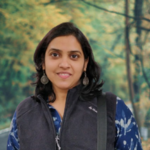 Aparna Dixit is a teacher, teacher educator, and independent researcher with over 15 years of experience in the field of language education. Her work focuses on educational research, multilingual education, and English as a Second Language. Deeply committed to strengthening school systems, she actively collaborates with teachers, principals, and other key stakeholders. Aparna writes about issues of language education, policy, and gender in Marathi and English.
Aparna Dixit is a teacher, teacher educator, and independent researcher with over 15 years of experience in the field of language education. Her work focuses on educational research, multilingual education, and English as a Second Language. Deeply committed to strengthening school systems, she actively collaborates with teachers, principals, and other key stakeholders. Aparna writes about issues of language education, policy, and gender in Marathi and English.
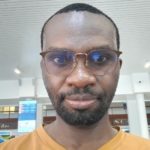 Eliakimu Sane is a lecturer in the Department of Foreign Languages and Literature at the University of Dodoma, Tanzania. He holds a PhD in Linguistics from the University of Dodoma, with a focus on the interplay between Maasai indigenous knowledge systems and language use. His academic background also includes a Master’s degree in Applied Linguistics and a Bachelor’s degree in Education. Sane’s research interests centre on language education, particularly the integration of language-supportive teaching methods within the language of instruction. He is committed to exploring how pedagogical strategies can be adapted to better support learners in multilingual classrooms, with a special emphasis on the transition from local languages to English in educational systems across Sub-Saharan Africa. He has been a Co-PI of the project Evaluating Language-Supportive Approaches to Transition at Scale (funded by the British Council), where he contributed to the evaluation of teaching interventions that support learners transitioning from home languages to English. Sane is currently involved in two research projects: Understanding–Supporting Understanding in the Classroom through the Understanding of Curricula Structures (funded by the Swedish Research Council), where he serves as a co-investigator examining how curricular structures affect learner comprehension in multilingual classrooms; Networking for Additive Multilingual Education in Sub-Saharan Africa, a collaborative initiative aimed at promoting sustainable multilingual education practices across the region. He has presented his work at various international conferences and has published in peer-reviewed journals on topics including language-in-education policy and multilingual literacy development. Sane is a member of the Tanzania Association of Language and Subject teachers, which is centred on capacity-building initiatives for teachers in Tanzania.
Eliakimu Sane is a lecturer in the Department of Foreign Languages and Literature at the University of Dodoma, Tanzania. He holds a PhD in Linguistics from the University of Dodoma, with a focus on the interplay between Maasai indigenous knowledge systems and language use. His academic background also includes a Master’s degree in Applied Linguistics and a Bachelor’s degree in Education. Sane’s research interests centre on language education, particularly the integration of language-supportive teaching methods within the language of instruction. He is committed to exploring how pedagogical strategies can be adapted to better support learners in multilingual classrooms, with a special emphasis on the transition from local languages to English in educational systems across Sub-Saharan Africa. He has been a Co-PI of the project Evaluating Language-Supportive Approaches to Transition at Scale (funded by the British Council), where he contributed to the evaluation of teaching interventions that support learners transitioning from home languages to English. Sane is currently involved in two research projects: Understanding–Supporting Understanding in the Classroom through the Understanding of Curricula Structures (funded by the Swedish Research Council), where he serves as a co-investigator examining how curricular structures affect learner comprehension in multilingual classrooms; Networking for Additive Multilingual Education in Sub-Saharan Africa, a collaborative initiative aimed at promoting sustainable multilingual education practices across the region. He has presented his work at various international conferences and has published in peer-reviewed journals on topics including language-in-education policy and multilingual literacy development. Sane is a member of the Tanzania Association of Language and Subject teachers, which is centred on capacity-building initiatives for teachers in Tanzania.
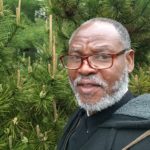 Rev. Fr. Cornelius Wambi Gulere is an esteemed scholar, educator, and advocate for linguistic diversity in Uganda’s higher education system. With a Ph.D. in Literature from Makerere University, he has dedicated over 25 years to the study and promotion of indigenous languages in Uganda. Dr. Gulere has significantly contributed to initiatives that integrate indigenous Ugandan languages into educational frameworks, particularly at universities such as Makerere, Kyambogo, and Uganda Christian University, where he has also been involved in developing language books and curricula. His research emphasises the role of language in cultural identity, social inclusion, and personal development. Dr. Gulere’s work on promoting multilingual education aligns with the goals of preserving Uganda’s rich linguistic heritage while empowering individuals through education. He is a passionate advocate for the rights of Uganda’s diverse linguistic communities and believes in the transformative power of language to foster national unity and sustainable development.
Rev. Fr. Cornelius Wambi Gulere is an esteemed scholar, educator, and advocate for linguistic diversity in Uganda’s higher education system. With a Ph.D. in Literature from Makerere University, he has dedicated over 25 years to the study and promotion of indigenous languages in Uganda. Dr. Gulere has significantly contributed to initiatives that integrate indigenous Ugandan languages into educational frameworks, particularly at universities such as Makerere, Kyambogo, and Uganda Christian University, where he has also been involved in developing language books and curricula. His research emphasises the role of language in cultural identity, social inclusion, and personal development. Dr. Gulere’s work on promoting multilingual education aligns with the goals of preserving Uganda’s rich linguistic heritage while empowering individuals through education. He is a passionate advocate for the rights of Uganda’s diverse linguistic communities and believes in the transformative power of language to foster national unity and sustainable development.
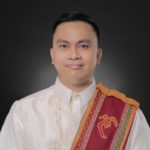 Fernigil L. Colicol is a Subanen from Sindangan, Zamboanga del Norte, Philippines. He is an assistant professor at Mindanao State University-Tawi-Tawi College of Technology and Oceanography (MSU-TCTO). He obtained his PhD in Education (Anthropology and Sociology of Education) at the University of the Philippines Diliman, where he received two international publication awards. His current research focuses on indigenous education and multilingual education. His publications appear in the Asia Pacific Journal of Education, Educational Philosophy and Theory, The International Journal of Educational Organisation and Leadership, and the International Journal of Learning, Teaching and Educational Research. He presented research papers at international and national conferences in the Philippines, Malaysia, Thailand, and the United States of America. He currently serves as the Mindanao Island Cluster Representative of the Society for Strategic Education Studies, an associate member of the National Research Council of the Philippines, and an active member of the CIES IKA SIG. He won the 2025 IKA SIG Best Paper Award.
Fernigil L. Colicol is a Subanen from Sindangan, Zamboanga del Norte, Philippines. He is an assistant professor at Mindanao State University-Tawi-Tawi College of Technology and Oceanography (MSU-TCTO). He obtained his PhD in Education (Anthropology and Sociology of Education) at the University of the Philippines Diliman, where he received two international publication awards. His current research focuses on indigenous education and multilingual education. His publications appear in the Asia Pacific Journal of Education, Educational Philosophy and Theory, The International Journal of Educational Organisation and Leadership, and the International Journal of Learning, Teaching and Educational Research. He presented research papers at international and national conferences in the Philippines, Malaysia, Thailand, and the United States of America. He currently serves as the Mindanao Island Cluster Representative of the Society for Strategic Education Studies, an associate member of the National Research Council of the Philippines, and an active member of the CIES IKA SIG. He won the 2025 IKA SIG Best Paper Award.
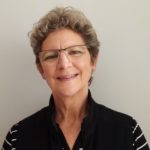 Barbara Trudell (PhD, Edinburgh) is a consultant in the field of local language use in both formal and non-formal learning contexts. Barbara’s areas of expertise include language policy development and analysis, the implementation of contextually appropriate multilingual education programme models, and community processes of language development and learning. Over the past 15 years, she has carried out research and technical consulting in eleven African nations. In 2010, Barbara founded an Africa-based consultant unit, SIL Africa Learning & Development (https://africa.sil.org), in which she currently serves as a project development officer and technical consultant.
Barbara Trudell (PhD, Edinburgh) is a consultant in the field of local language use in both formal and non-formal learning contexts. Barbara’s areas of expertise include language policy development and analysis, the implementation of contextually appropriate multilingual education programme models, and community processes of language development and learning. Over the past 15 years, she has carried out research and technical consulting in eleven African nations. In 2010, Barbara founded an Africa-based consultant unit, SIL Africa Learning & Development (https://africa.sil.org), in which she currently serves as a project development officer and technical consultant.

